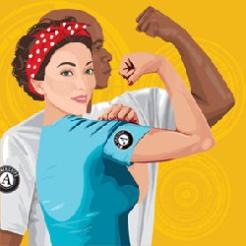The Office for Civil Society has published a report citing international examples of Big Society initiatives.
The aim of the report is to look at how other countries run their public services or organise local community projects that UK citizens or organisations can take inspiration from.
It is not intended to be comprehensive review of what exists but to see how the Big Society is in action elsewhere and provide ideas for adaptation here.
The report contains ten case studies of Big Society examples from both rich and developing countries. These include:
- OpenStreetMap – an open source version of online maps that now competes with the likes of Google Maps. It originated in University College London and is a good example of the use of crowdsourcing to devise tools that benefit its users.
- AmeriCorps (pictured) – the highly-acclaimed US citizen volunteering programme that launched under President Clinton and was expanded by 50 per cent under President Bush. Over 400,000 US citizens have taken part in AmeriCorps since it was created in 1993. However, post-recession budget restraints mean the programme is now at risk of cuts.
- Neighbourhood planning in Seattle, Washington – in Seattle, the Department of Planning and Development worked together with the Department of Neighbourhoods to invite people from all communities to participate in a wide-ranging consultation on neighbourhood planning. More than 300 workshops and events have taken place involving more than 1,200 residents, many from areas that do not normally contribute to consultations. Action plans for specific communities are now published online.
- Cigdemim neighbourhood association, north-east Turkey – residents took it upon themselves to come together to improve the local infrastructure by building pavements and installing power cables. The number of members had grown to over 400 by 2010. All costs are covered by the residents and local businesses through donations of money, materials and time. No public funding is used.
- Community Contact Service, city of Yarra, Australia – a social enterprise set up by tenants in a housing estate blighted by high rates of crime and violence. The Department of Human Services agreed to procure concierge and security services from the social enterprise which increased employment among tenants and restored trust between residents.
- Recovery Innovations, Phoenix, Arizona – a programme that provides peer support and recovery education to adults with serious mental illness, and where the users of the services become providers after some training. It is organised in a non-hierarchal fashion dubbed ‘organisational recovery’ in which staff and management “float” around the projects at the same level.









